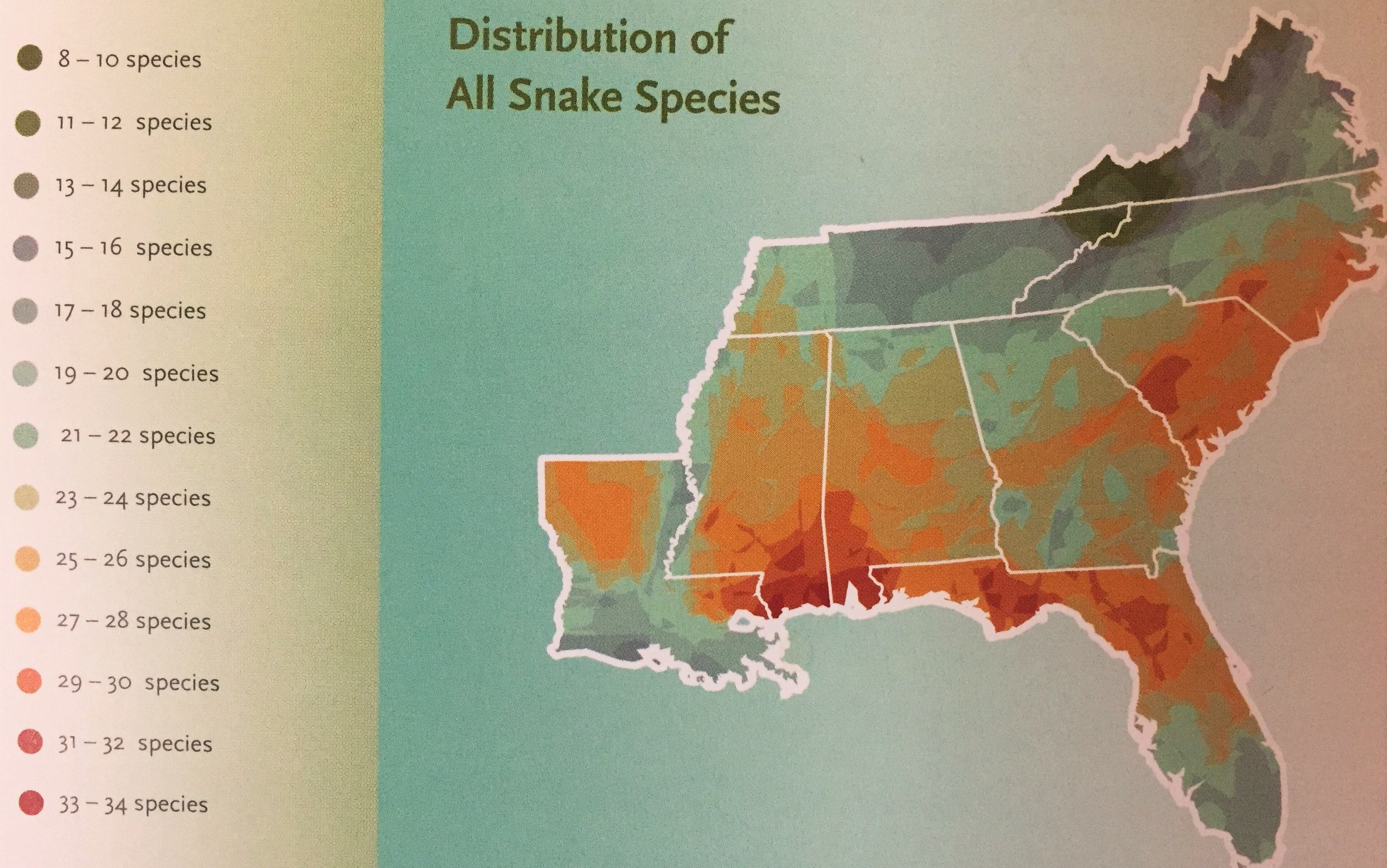Snakes are most attracted to these kinds of Atlanta homes
Yikes! That's how people usually react when they encounter snakes despite the vital role these reptiles play in our ecosystem. If the sight of these slithering slippery creatures spooks you, don't invite them to your home.
» RELATED: It's the season for snakes: When should you worry?
Invite them? Yes, your yard, landscaping, certain garden features and pets may act as a calling card for snakes.
According to biologists and herpetologists who study snakes, the reptiles are generally more endangered than dangerous. Even venomous snakes don't stalk humans in hopes of taking a bite. If you do encounter a snake in your yard, leave it alone or handle it in a nonlethal way. The Humane Society has helpful guidelines for this.
» RELATED: How Atlantans can identify venomous snakes this summer
Snakes are a reality of living in Georgia. As evidenced in the book "Snakes of the Southeast," by J. Whitfield "Whit" Gibbons, Professor Emeritus of Ecology at the University of Georgia/SREL and Mike Dorcas, snakes are long-time Georgia residents with established roots in Atlanta area neighborhoods.
"I don't believe the Atlanta area has any particular place that has more snakes than another. It all comes down to habitat," said Jason Clark of Southeastern Reptile Rescue.
Clark suggests people address what might be attracting snakes to their property, such as food sources and nesting places.
» RELATED: Largest venomous snake in U.S. spotted swimming in waters off Florida Keys
Homes with thick ground cover
The desire to reduce the cost of lawn care and to create texture and interest in the yard makes ground cover an attractive alternative to grass. However, thick ground cover, such as ivy, acts as a sanctuary for snakes.
"Of the Atlanta area properties that we've been asked to visit, the ones with an abundance of ivy or similar low-growing ground cover seems to also have a healthy snake population," said Clark.
» RELATED: Photos: Georgia's venomous snakes and how to identify them
Clark said snakes enjoy hiding. He recommends eliminating "snake shelters," such as low shrubs, piles of leaves and ground cover such as ivy and monkey grass.
In response to a reader who wanted advice about how to keep snakes out of his yard, Walter Reeves, the Georgia Gardner, wrote, "Snake control is best done by removing environments they like. It's easy for snakes to find food near a creek and shelter under low ground cover like ivy. Since you have both, you'll have snakes for the foreseeable future."

Homes with snake bait
Few people intentionally provide food for snakes, but your home could be an inadvertant attraction to them anyway.
"Snakes live to eat," said Clark. "In addition to cover, a food source must also be available."
This is another reason why Atlanta homeowners should focus on fixing house qualities that attract snakes instead of killing individual animals as they see them. Clark compares killing snakes without eliminating food sources to "filling a bird feeder with bird seed and not wanting birds around."
» RELATED: Here are tips on keeping a snake-free yard
Speaking of bird feeders, Clark says they attract more than birds. The seeds also attract squirrels and mice, tasty treats for snakes. Clark also suggests ridding the yard of leftover pet food and garbage that might attract rodents.
Keep in mind, if you have a pond or live near fresh water that attracts frogs, you might also be inviting snakes that eat amphibians.
Clark said if there is no food source or place to hide, snakes will eventually move on to another location, perhaps your neighbor's yard.
Assuming the snakes are not venomous or a species that is actually a danger to your family, you may actually want them in your yard.
» RELATED: Veterinarians say snakebites are up among pets
"Snakes are important predators of numerous pest species, a list including but not limited to rats and mice," said senior wildlife biologist John Jensen of the Georgia Department of Natural Resources' Nongame Conservation Section. "While many of Georgia's native snake species do not eat rodents, they serve important roles in controlling other invasive or potentially dangerous animals."
If you encounter snakes
When you stumble upon a venomous snake or species you are unsure of, Jensen said the safest response is to simply walk away.
"Most venomous snake bites occur when people try to handle, harass or kill the snake," said Jensen. "Snakes will not chase a person. Also keep in mind that nonvenomous snakes are protected in Georgia and cannot legally be killed; nor should they be – they're harmless."

